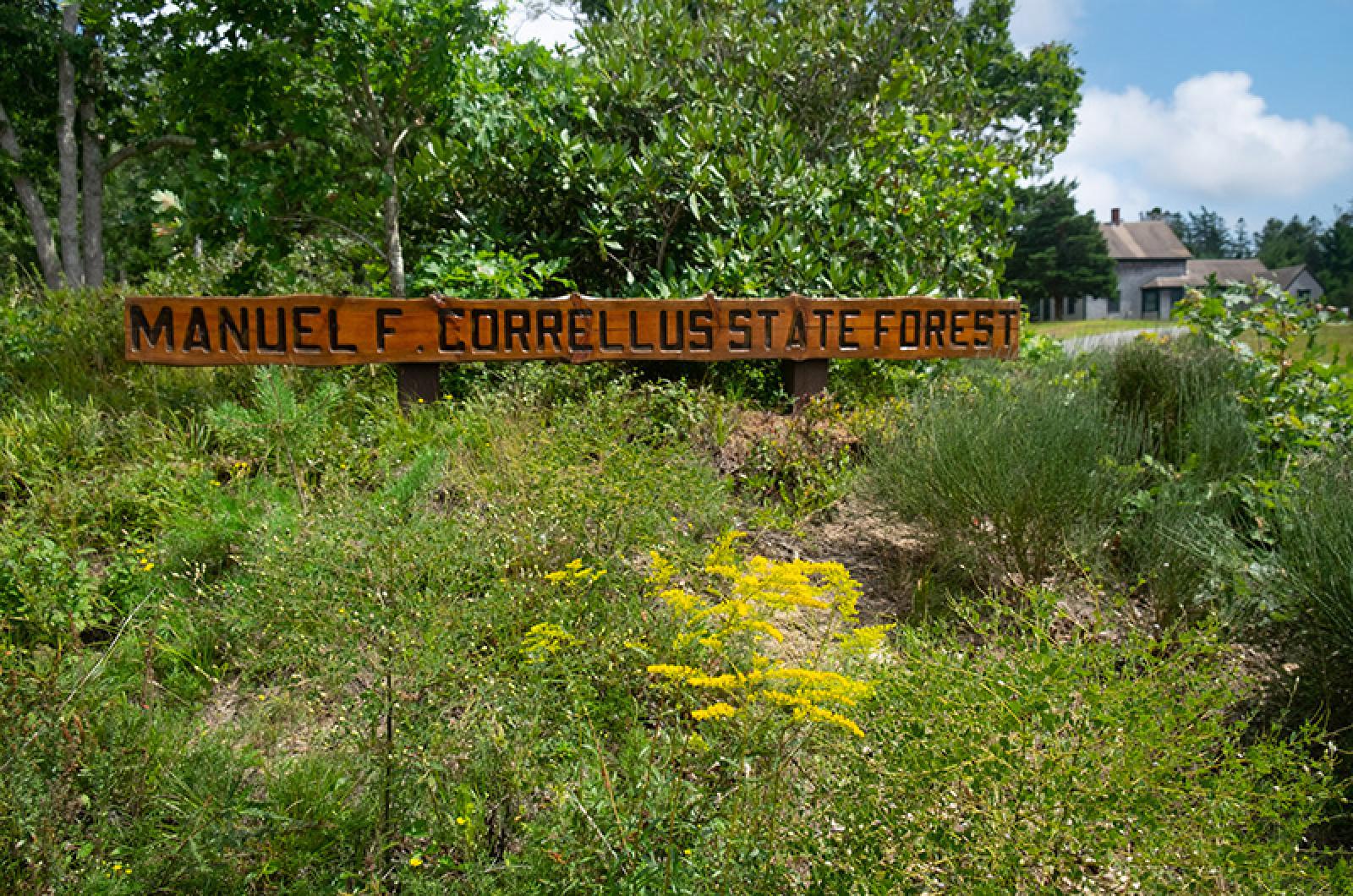With some five million acres aflame on the West Coast, one would expect the danger of wildfire to be top of mind for those responsible for caring for Massachusetts forests. Why then, in the midst of a significant drought, is the state Department of Conservation and Recreation dragging its feet on finding a superintendent to oversee the Island’s Manuel F. Correllus State Forest?
The 5,300-acre state-owned forest has been without a resident manager since March, when superintendent Chris Bruno left to take a job in the South. Since then, most of the work that has been done on the forest has been undertaken by a single state employee commuting from the Cape.
Located smack in the middle of Martha’s Vineyard, the forest also holds a central place in the Island’s ecology. Home to many rare species including the now-extinct heath hen, the forest also protects the Island’s sole-source aquifer, which provides safe drinking water for residents.
The forest itself is a mix of scrub oak, pitch pine and oak woodland and was prone to frequent large fires in the years before it came under active management. Bordering the airport and several populous neighborhoods, it is critically in need of regular maintenance including prescribed burns to keep it in check.
At a meeting of the Martha’s Vineyard Commission last week, commissioners sounded the alarm about the lack of a full-time manager for the forest, noting the risk of fire has been exacerbated by a prolonged period of drought and the presence of informal campsites.
For 26 years until his untimely death in 2013, John Varkonda was the Island-based forest superintendent, and his tenure underscored the value of a manager who lives and works on Island.In addition to maintaining fire trails, inspecting and staffing fire towers, and managing periodic burns to improve the forest habitat, he worked with conservation groups and researchers concerned with rare species, coordinated with town fire officials and helped oversee the hunting season.
The job also included maintaining many miles of bike paths and walking trails that crisscross the forest and for ensuring that recreational users, including hunters, were following the rules.
In addition, the position historically played a key role as liaison between the state, which owns South Beach and State Beach, and the town of Edgartown and the county, which manage each of those respectively.
For most of his tenure, Mr. Varkonda and his family lived in a state-owned house located in forest grounds. Though the house has since been renovated, it was not made available to Mr. Bruno for reasons that are not entirely clear. Given the dire shortage of affordable housing on the Island, access to a home could be an important element in attracting and keeping a resident superintendent.
But in successive email statements since Mr. Bruno’s resignation, the DCR has been vague about whether it plans to hire a full-time superintendent at all.
“At this time, DCR is reviewing forest management options at Manuel F. Correllus State Forest; in the interim, the agency is working with existing DCR South Region staff, including a DCR Wildland Firefighter, to maintain the forest, authorized trails, and the fire tower,” the latest statement said.
In trying to maintain the property with off-Island employees, the state is doing Martha’s Vineyard a grave disservice by seriously underestimating the need for full-time, Island-based oversight. The danger of fire, perhaps caused by stray lightning or a careless camper, is not limited to a 40-hour work week. Moreover, there is a large if undefinable value to both the Island and the state in having an on-site liaison like Mr. Varkonda who was able to develop strong relationships with town employees, conservation groups and residents.
The MVC’s decision to write to the DCR and form a working group to address the state’s inaction is a good first step. Our legislative representatives, Sen. Julian Cyr and Rep. Dylan Fernandes, should also be enlisted in the cause.
If the issue is money, whatever small savings the state hopes to achieve by eliminating the position is surely not worth the potential cost.




Comments (2)
Comments
Comment policy »